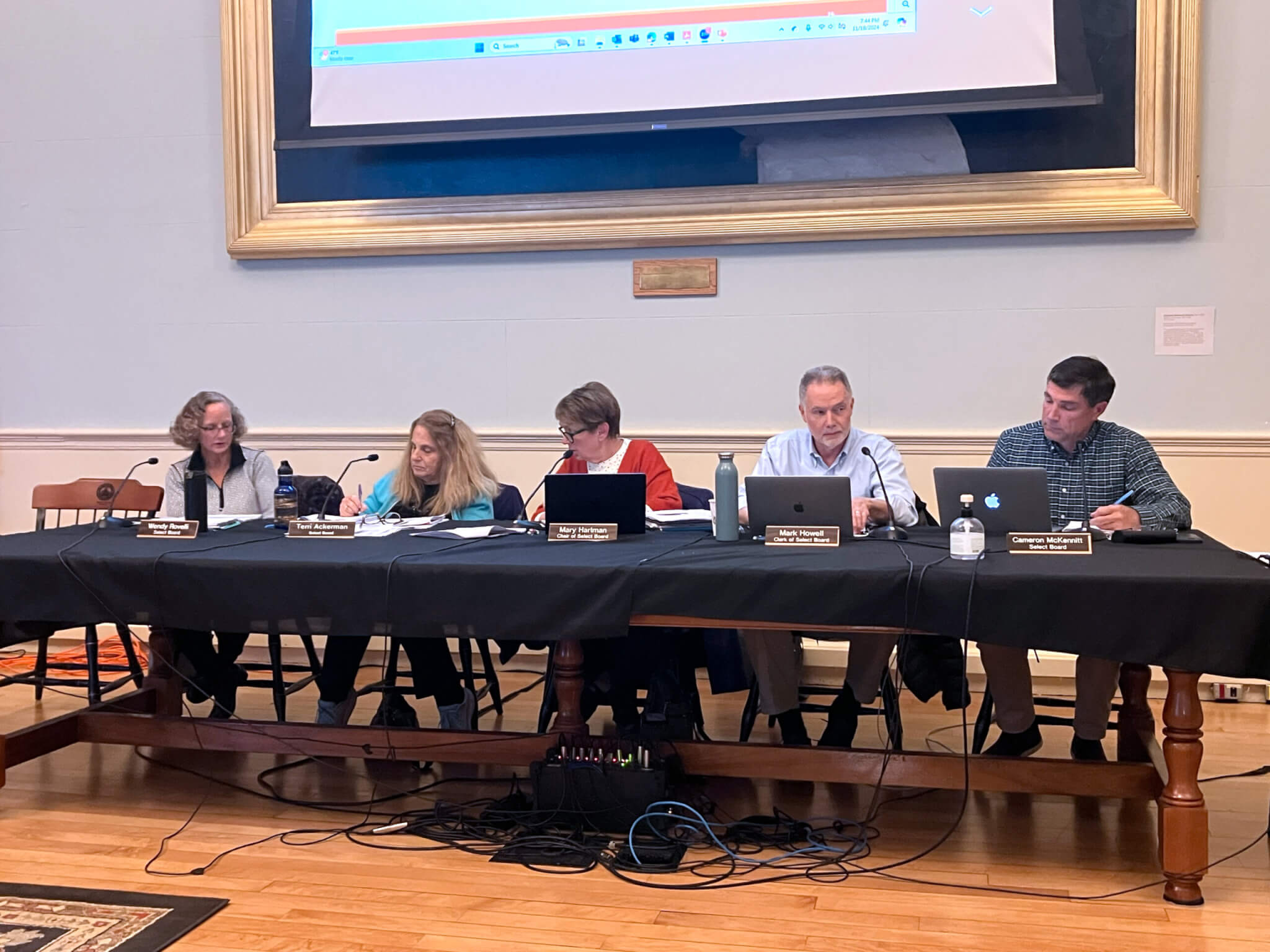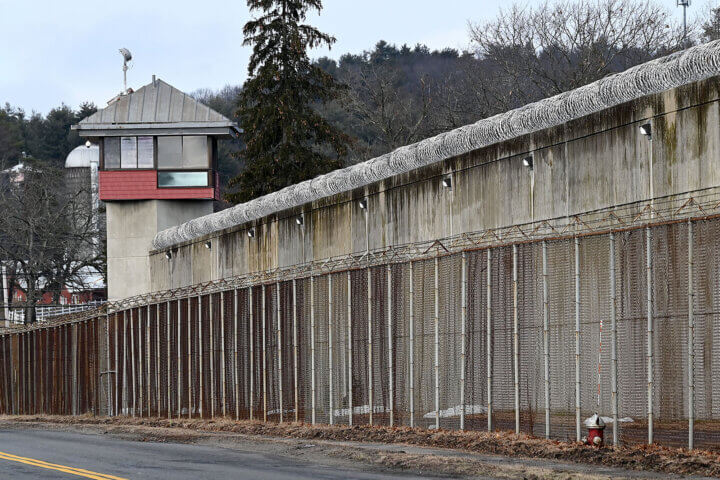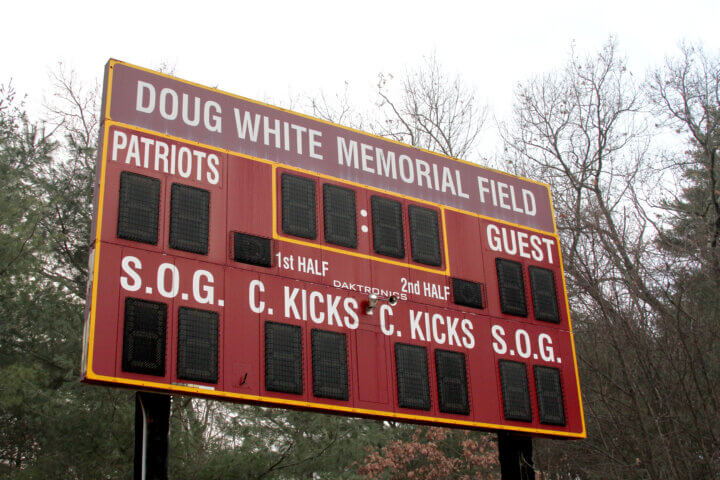By Dakota Antelman — Dakota@concordbridge.org
Concord’s controversial residential tax exemption (RTE) will stick around for another year after a split Select Board vote.
The group backed the RTE by a 4-1 vote at its annual tax classification hearing Monday after hearing arguments for and against the policy the Select Board first adopted last fall.
“It is not a perfect tool,” said clerk Mark Howell. “There will never be a perfect tool. It is just one of the very few options that we have available to us.”
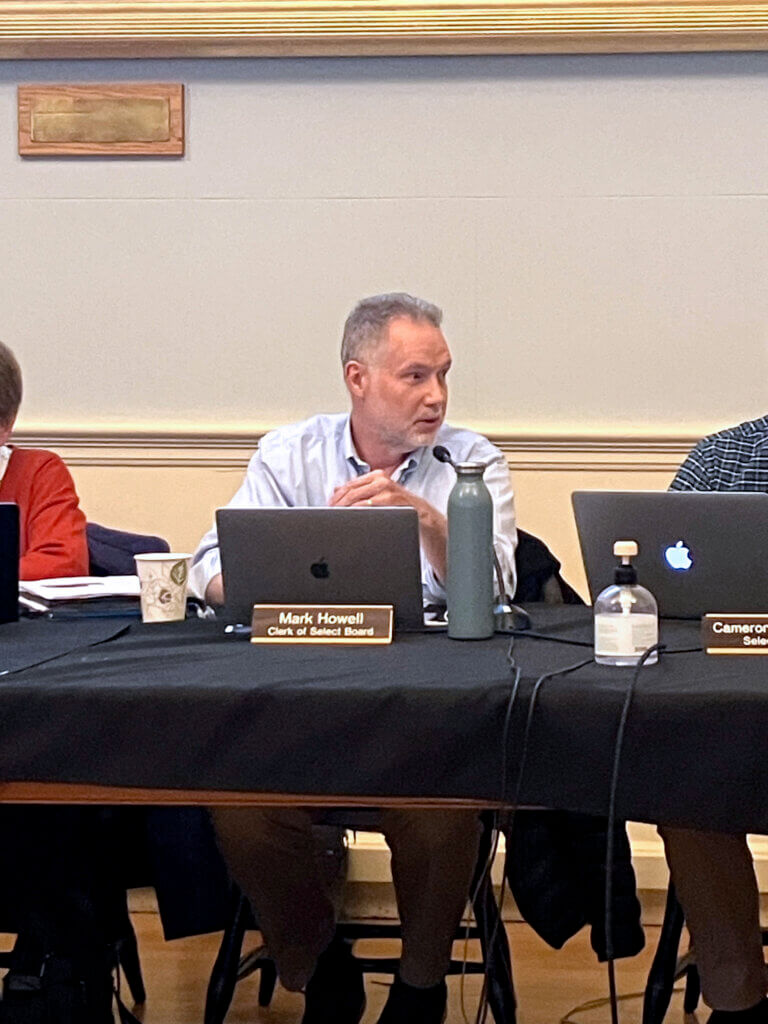
FY25 tax rate
By setting a 10 percent RTE, the Select Board set the residential tax rate for the 2025 fiscal year at $13.24 per $1,000 of assessed valuation. The previous rate was $13.13.
The RTE shifts some of Concord’s residential tax burden away from lower-valued homes and onto more expensive houses, apartment buildings, and vacation homes. In the exemption’s debut year, the average homeowner saved about $1,800 in taxes.
The average home value in Concord is now just over $1.44 million. Under the RTE, 10 percent of that figure, or roughly $144,000, is deducted from every qualifying home’s assessed tax value. The home is then taxed on the remaining value.
Homeowners must list their Concord property as their “primary domicile” to qualify for the exemption. If their house or condo is worth less than the break-even point of just under $2.26 million, they will receive a tax discount. Homes worth more than the break-even point will see a net tax increase even if their owners qualify for the tax break.

Concord has 6,056 residential properties, 3,870 of which qualify for the RTE, town assessor Meredith Stone said.
The RTE does not affect the town’s tax rate for commercial, industrial, and personal property. That rate will increase to $12.39 per $1,000.
Calls for a committee
RTE supporters say the policy helps Concord seniors and those with lower or fixed incomes stay in their homes as property taxes rise.
Opponents argue it unfairly burdens owners of higher-valued homes while doing little to protect others from being priced out of town.
Several speakers at Monday’s hearing focused on Select Board members themselves.
“You’re horribly conflicted,” said Finance Committee member Jon Garofalo, speaking on his own behalf. “You’re ethically compromised. And I’m shocked the town manager or the town counsel hasn’t looked into this further.”
Chair Mary Hartman acknowledged some Select Board members benefit from the RTE; others don’t. She said the board checked with town counsel and the state Ethics Commission and was told members did not have to recuse themselves given the RTE’s broad impact on the town’s population.
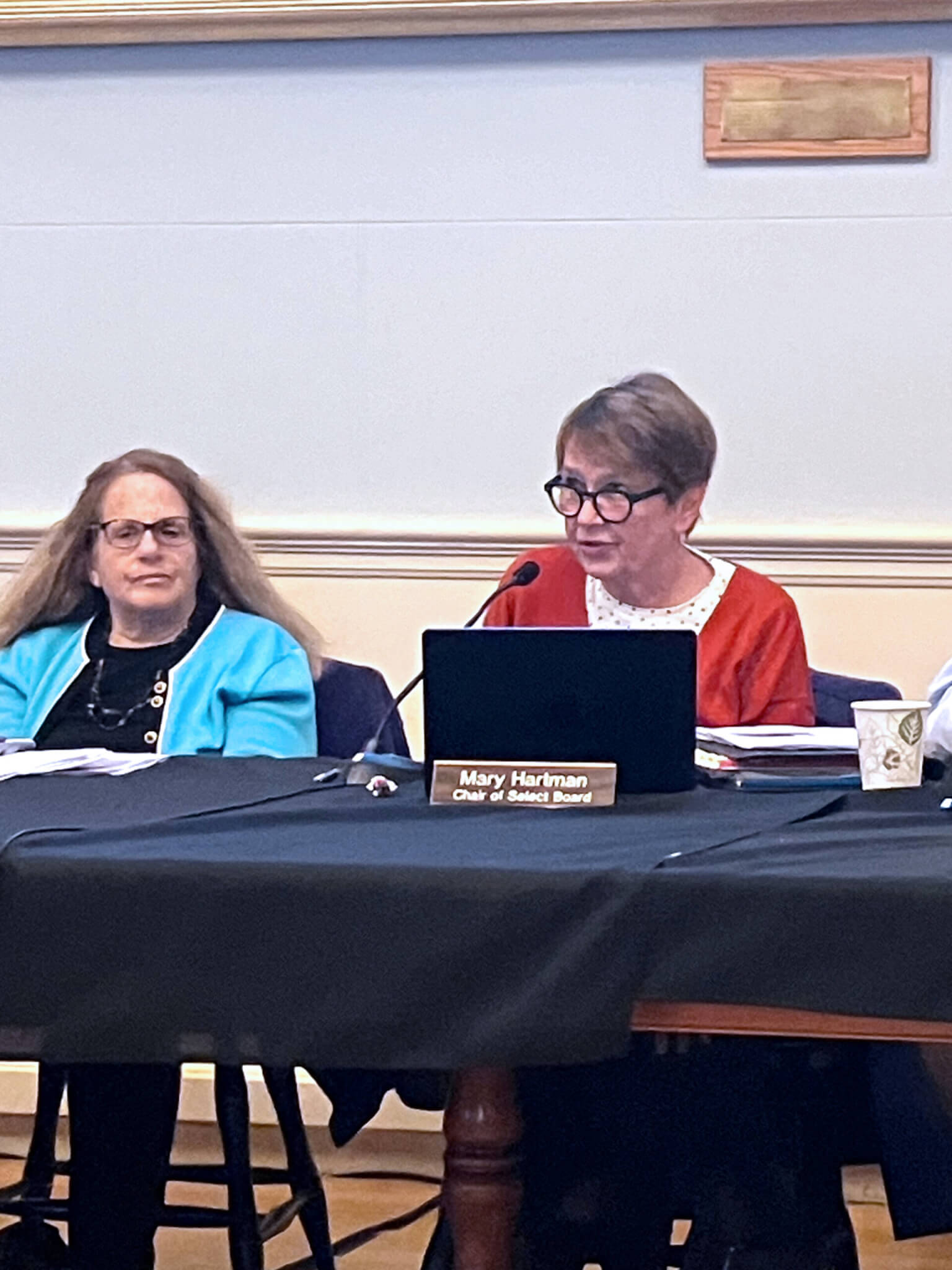
Among other comments, opponents called on the board to create a committee to study the RTE’s effectiveness.
Hartman said last November that she was “willing to entertain the thought of having a task force.” To date, no such group has materialized.
“If we were to do a study, it would be based on speculative data,” she said. “If we wait two or three years, we will have actual data.”
Hartman said she is also concerned about finding people who could objectively weigh the RTE’s pros and cons.
Town spending
Though the exemption sparked debate, both sides directed some ire at municipal spending, albeit through different lenses.
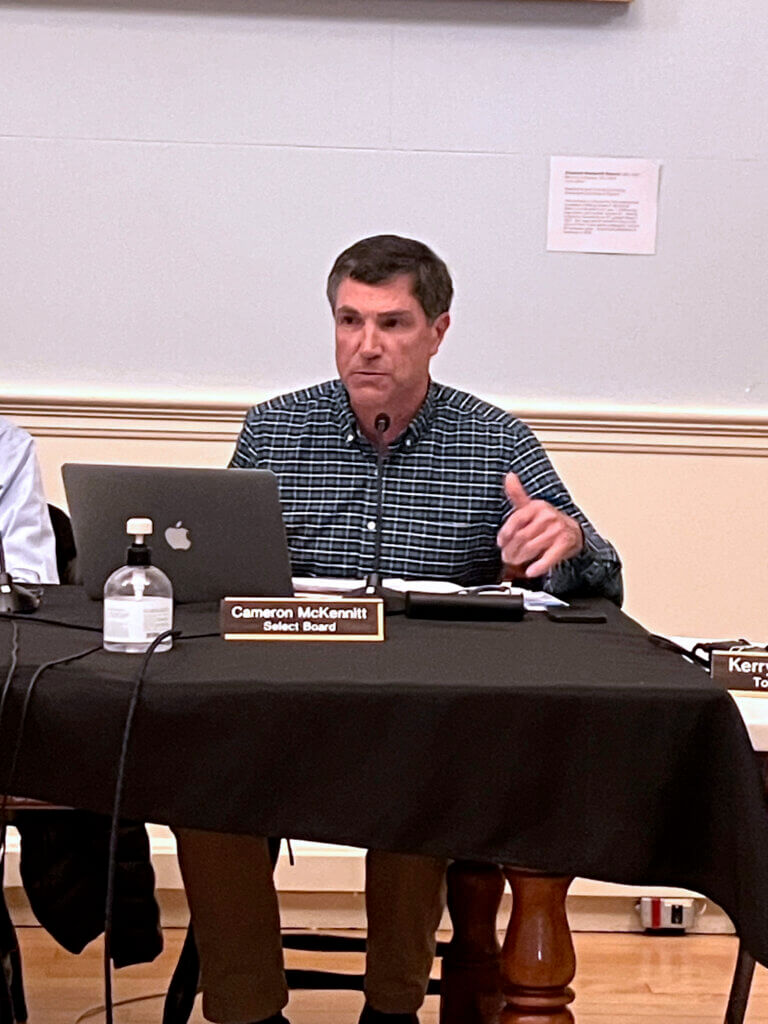
“We owe it to our citizens to do better on taxes and spending, and the RTE doesn’t get us there,” Select Board member Cameron McKennitt said before casting the lone “no” vote.
McKennitt called the RTE “egregiously flawed.” Instead, he said, the town should improve and publicize senior tax relief programs and that leaders should work together to cut spending.
Hartman said the RTE isn’t the culprit in Concord’s fiscal challenges.
“Blaming the RTE is not really getting to the fundamental problem, which is spending,” she said, “and that’s up to Town Meeting.”



